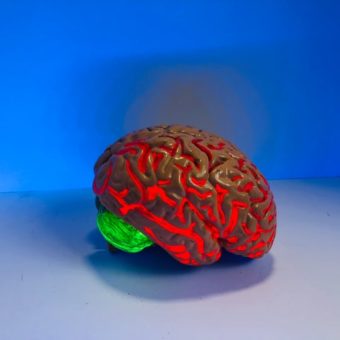Four Weekly Tech Newsletter – April 18
Lead articles from April 18

Artificial Intelligence helps spot diabetes risk
Watching your diet and glucose levels is part of living with type 2 diabetes. Artificial intelligence may soon help your doctor see your risk for diabetes before you can. AI won’t tell you not to eat that second cookie. But it could help your doctor know if there’s a good chance you may develop diabetes in the next year, which could make dessert less appealing.

AI that more closely mimics the mind
Leveraging years of MIT cognitive science research, Nara Logics incorporates findings about the brain into its AI platform. For all the progress that’s been made in the field of artificial intelligence, the world’s most flexible, efficient information processor remains the human brain.

The spectacular growth of Artificial Intelligence today
Artificial intelligence has transformed the business environment drastically. What began as a rule-based automation system is now capable of simulating human interaction. AI is not only exceptional because of human capabilities. As compared to human equivalents, an advanced AI algorithm provides better speed and capacity at a much lower price. Today, we’re already related to AI in some way, whether it’s Siri, or Alexa…

Why Artificial Intelligence might not win a war
It’s widely presumed that artificial intelligence (AI) will play a dominant role in future wars. Maybe not Skynet and Terminator-level stuff, but plenty of independent hunter-killer vehicles blasting each other and the rest of us. However, the way the future unfolds might be nothing like that. AI developments increasingly led by machine learning-enabled technologies, seem to be going in another direction.

AI security - how human bias limits Artificial Intelligence
For cybersecurity experts, artificial intelligence (AI) can both respond to and predict threats. But because AI security is everywhere, attackers are using it to launch more refined attacks. Each side is seemingly playing catch-up, with no clear winner in sight. How can defenders stay ahead? To gain context about AI that goes beyond prediction, detection and response, our industry will need to ‘humanize’ the process.

Why Microsoft's new AI acquisition is a big deal
Microsoft’s recent shopping spree reached a new climax this week with the announcement of its $19.7 billion acquisition of Nuance, a company that provides speech recognition and conversational AI services. Nuance is best known for its deep learning voice transcription service, which is very popular in the health care sector. Nuance had built several of its products on top of Microsoft’s Azure cloud.